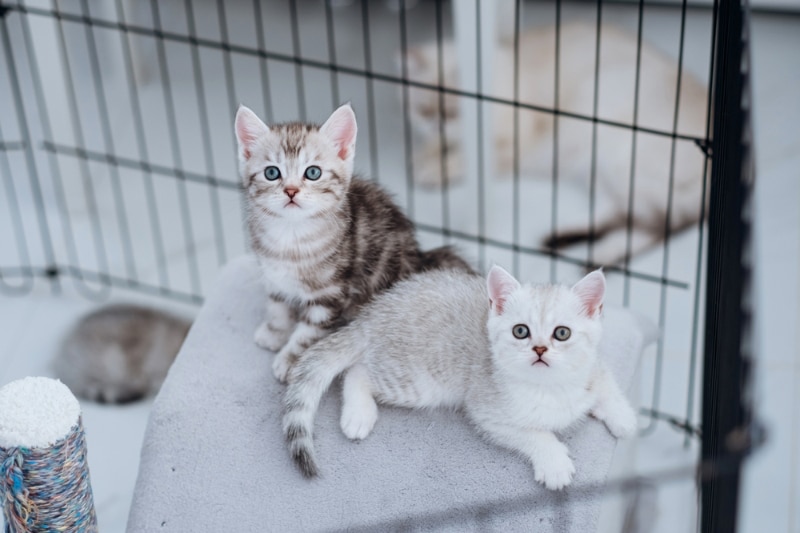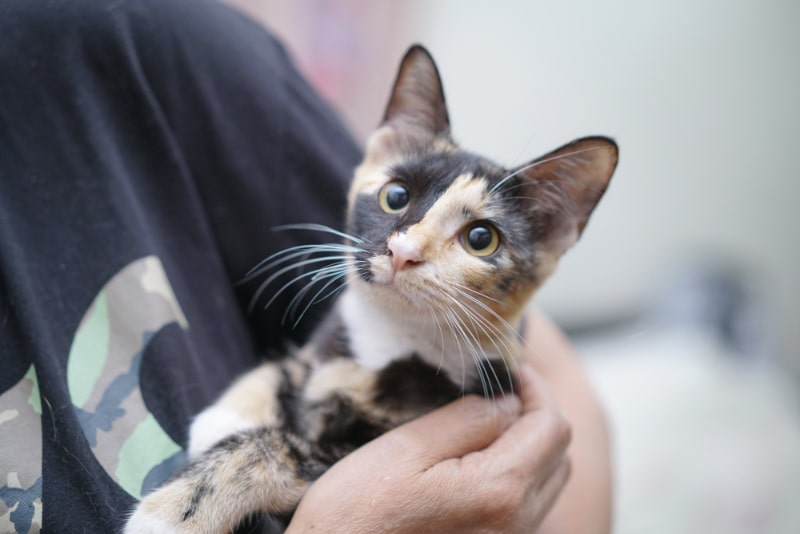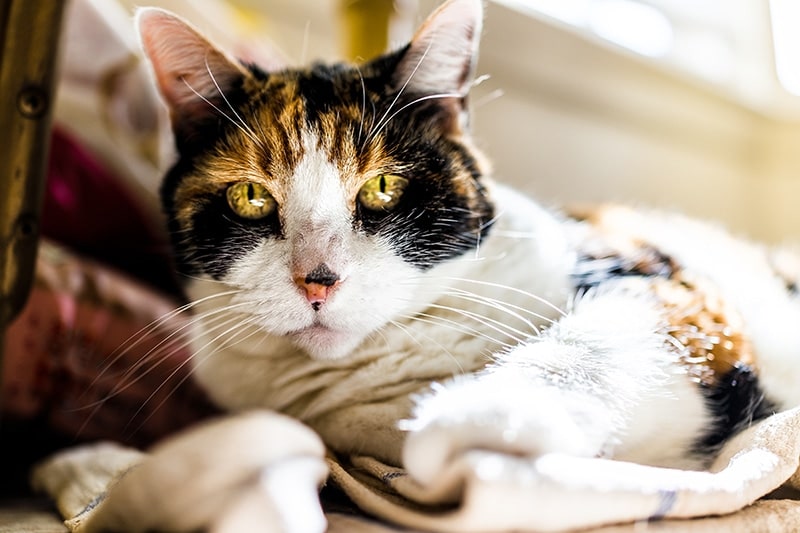You’ve decided it’s time to get a warm, fuzzy love ball – in essence, a cat. But there are so many unwanted cats up for adoption it can be overwhelming to choose one. When selecting a cat, you might consider size, temperament, shedding, and other criteria but the first issue to solve is how old you’d like the cat to be.
This can be determined by looking at the benefits and drawbacks of adopting an older cat or young kitten. But what is the best age to adopt a cat? All cats have something special to offer regardless of age but there are some considerations which will help you make the best cat selection.
Adopting Cats at Different Lifestages Explained
Adopting Kittens

Kittens are so much fun but they’re a lot of work, too. What’s the best age to adopt a kitten? The ideal age is 12 weeks, nor be as healthy.
- A Fresh Start: Kittens are a clean page for you to fill in the story. They haven’t had a chance to develop neurosis or behavior problems. It’s up to you to mold them.
- Training: You can start training a kitten right away. They respond well to treats, attention or a toy. They can also be gently corrected for unwanted behavior, such as scratching or biting.
- Comedic Relief: There’s little funnier than a kitten jumping straight up in the air to catch a fly or a kitten falling off the sofa and looking shocked.
- Other Pets: Existing cats or dogs are more likely to accept a kitten than an older cat.
- Health: Kittens can have special health issues, including worms, ear mites, Ringworm and Feline Leukemia. Sometimes their have sensitive stomachs which can mean finding the right food is a task.
- Safety: Kittens get into everything. Your house must basically be clutter free and you need to check for holes in walls, screens, etc.
- Housetraining: A kitten must be trained to use a litter box.
- Mewing: Some kittens are very vocal and it takes some crafty training to curb this.
Adopting Middle-Aged Cats

- Personality: When you adopt an older cat, you get a good look at her personality before bringing her home. The shelter should know if she’s good with other cats or dogs, children, etc.
- Health: A cat tends to be healthiest in the middle of their lives. Your cat should have been checked over by a veterinarian and treated for any immediate health issues.
- Activity: An older cat is calmer and more placid.
- Background: Shelters often don’t know a cat’s exact background which means she could have some personality or behavior issues.
- Training: It can be tougher to train an older cat but you also don’t have to be as reserved. Using tools such as a water squirt bottle can help deter unwanted behavior.
- Spaying and Neutering: If your cat has not been fixed, you can expect some behavioral issues such as humping and vocalizing when she’s in heat. It is safe to spay or neuter a cat up to six years old and many people do it past that, as well.
Adopting Elderly Cats

Cats over 10 are considered elderly. When considering whether to adopt an older cat or a young kitten, consider these issues:
- An Act of Kindness: Anyone who adopts an elderly cat is doing a great thing. They are the least likely to be adopted and shelters cannot keep them indefinitely.
- Behavior Problems: Old cats generally do not have the same behavior problems as younger cats.
- Personality: Now you’re talking about getting a truly mellow cat. She is also usually more companionable.
- Activity: Old cats are less likely to hunt and get themselves into trouble. Your elderly cat is unlikely to get underfoot like a kitten would.
- Housetraining: Most likely, an elderly cat will be completely housetrained.
- Training: If you do have some behavior issues, training can be tough, But you can definitely teach old cats new tricks – it’s just a matter of patience.
- Health: Older cats tend to have more issues than middle-aged cats. Their teeth and gums often require vet attention, they are prone to parasites, and kidney problems. They also sometimes get arthritis.
- Less Time Together: Most cats live until about 16 so your time with an elderly cat is, obviously, more limited than your time with a kitten.
- Selecting a cat is such a personal issue. Considering whether an older cat or young kitten fits your life is essential and knowing the issues of each age will make your cat selection an easier task.
Featured Image Credit: Jumpstory









